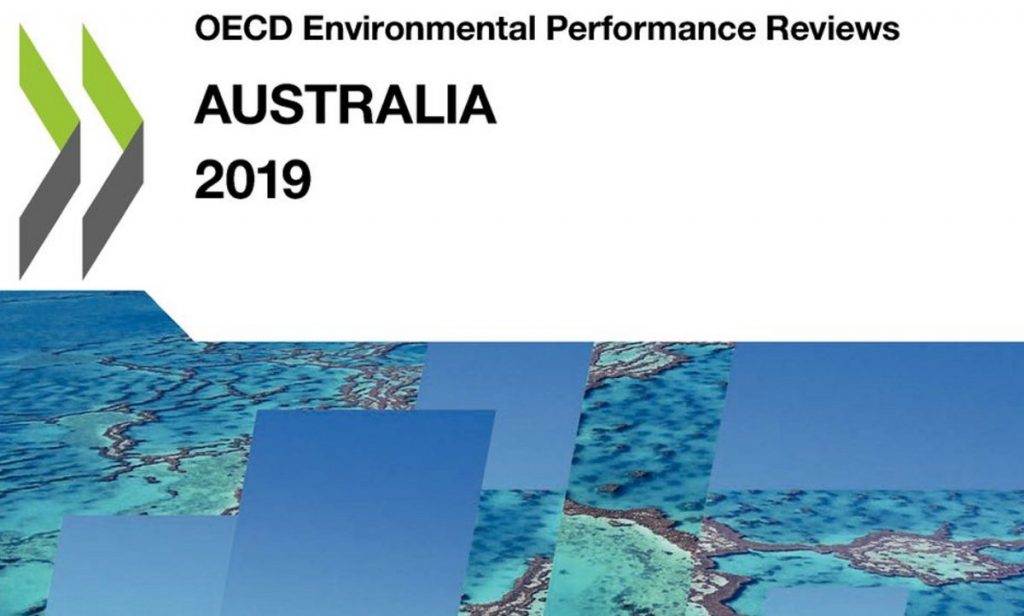The Organisation for Economic Co-operation and Development says Australia it is one of the most resource/carbon-intensive OECD countries, and basically the Government needs to pull its finger out.
The OECD’s mission is to promote policies seeking to improve the economic and social well-being of people around the world. There are 34 OECD member countries, including Australia.
The OECD’s third Environmental Performance Review of Australia was released yesterday, which states the country won’t reach its 2030 emissions target without a major effort to move to a low-carbon model. It says Australia is one of the few OECD countries where greenhouse gas emissions (excluding land use and forestry) have risen in the past ten years.
“Reliant on coal for two-thirds of its electricity, Australia has one of the highest levels of non-renewable energy use of advanced economies, with fossil fuel consumption still benefitting from government support,” states a release accompanying the report.
The report notes 63% of Australia’s electricity was derived from coal in 2017, whereas the OECD average was 27%. There are a few confusing figures in the report and release. The report says coal, oil and gas made up 84% of Australia’s energy mix in 2017 (noted as 93% in the press release, which is incorrect), compared to an OECD average of 80% (press release). That left renewables at 16% in Australia in 2017, compared to an OECD average of 25% (report). But if the OECD average for coal, oil and gas was 80%, how could renewables have been 25%? Australia has also installed a bunch of renewables since 2017 and more is on the way this year.
Anyway, among the energy-related recommendations in the Review:
- The implementation of national integrated energy and climate policy framework for 2030 based on a low-emission development strategy for 2050, in line with the Paris Agreement.
- Bring energy taxes in line with environmental impacts of fuel use; i.e. taxing fuels currently exempt and increasing tax rates that are too low.
OECD Deputy Environment Director Anthony Cox said Australia is home to a tenth of global species and is seen by many as synonymous with pristine coastal areas and an “outback brimming with nature”.
“However the country is increasingly exposed to rising sea levels, floods, heat waves, bushfires and drought,” Mr. Cox stated. “This makes it all the more important that Australia take a more proactive role in fighting climate change and addressing biodiversity loss.”
In the report, Australia does get a thumbs up for its progress on solar energy, with it stating Australia is a world leader in solar PV installed capacity per inhabitant. While not providing a figure, in terms of small-scale solar power (systems under 100kW), the per capita capacity is currently around 315 watts. The report also notes ten coal-fired power plants have been shuttered and three announced for decommissioning in Australia since 2010.
The full report is a big ‘un at 252 pages, or you can download a much leaner 16-page summary here (PDF).


 RSS - Posts
RSS - Posts



Speak Your Mind